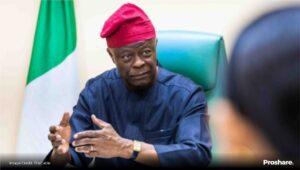
Reps committee mulls establishment of Maritime Bank
By Seun Ibiyemi
The House of Representatives Committee on Shipping Service, on Thursday, mulled establishment of a marítime bank for the development of the nation’s shipping sector.
This was disclosed by the chairman of the committee, Hon. Abdulsamad Dasuki, when he paid an oversight visit to the council headquarters in Lagos.
Dasuki, who stated that creating Marítime bank will stop capital flight, however, disclosed that the committee was planning to have a meeting with the Shipowners for effective service delivery in the country.
“The committee is looking at the possibilities of establishing a maritime bank so that the marítime sector will have its own bank and the Shipowners will have their bank as this will help stop capital flight,” he stated.
Dasuki further stated that the bill to give the council backing as port economic regulator has passed second reading in the house of representatives.
According to Dasuki, the bill will be a catalyst for changing the nation’s economy, saying the council will perform exceptionally when the bill is passed into law.
“We have taken note of most of the issues you highlighted, the successes and challenges. The NSC is the port economic regulator which is operating with regulation and by God grace the bill to make the agency a true regulator has passed the second reading and we will soon call for public hearing, that bill will be a catalyst for changing the economy. Also, the Shippers’ council will do better when the law is passed,” Dasuki stated.
The committee chairman also spoke about the one percent freight stabilisation fund, saying, “We have taken note as well of the current issues that are happening with the Federal Ministry of Finance (FMOF), with 50 percent of your revenue and you will get support to get the fund due to your agency. We expect you to deliver more and bring more money to Nigeria. You said NSC will ensure that the GDP of Nigeria goes up through your contributions by the end of 2024.”
Speaking earlier, the executive secretary of NSC, Pius Ukeyima Akutah, sought the support of the House of Representatives Committee on Shipping Service on getting approval for the 1 percent freight stabilisation fee statutorily embedded in the council’s act.
Akutah said once the Oronsaye report is fully implemented, the council will no longer get its statutory 2 percent share from the 7 percent Port Development Levy.
”There is a need for us to implement our statutory funding, which is the 1 percent Freight Stabilisation Fee. I think this is very pivotal at this time that the Oronsaye Report is being implemented. Once the Oronsaye report is implemented, the 7 percent Port Development Levy which the Shippers Council gets 2 percent from, may no longer be available. So, I think we need to work very hard to ensure that the Nigerian Shippers Council funding position is secured.”
Akutah also disclosed that since the council’s mandate has been expanded to be the port economic regulator, there is need for a law that will back up its new mandate.
According to him, the council has been at the forefront of facilitating trade and also ensuring efficiency of the port for business to thrive and for the government to make more money.
‘’Today is a very important day, first of its kind, especially since I resumed here. The mandate of the council has been expanded and we are to do more as Port economic regulators. We have a lot to do to regulate the sector and President Bola Tinubu has created Ministry of Marine and Blue Economy with the mindset to focus on blue Economy, and to diversify nation’s economy from crude.
“Our mandate is to facilitate trade and ensure efficiency of the port for business to thrive and for the nation to make more money, create opportunities for youth empowerment, job creation and others.
“And now that we have a committee for shipping service and with their collaboration, we will see rapid development in the sector. We are grateful to receive you today and we know that the impact of the visit will live with us for a long time. We need to contribute to the GDP and the nation’s economy and to acheive this, we need your protection.
“We have some bills before the national assembly such as repealing the council act to be Port economic regulator and you have tried to see to the passage, the bill is operational to carry out our mandate because without it, it will be difficult for us to achieve our mandate,” he stated.




